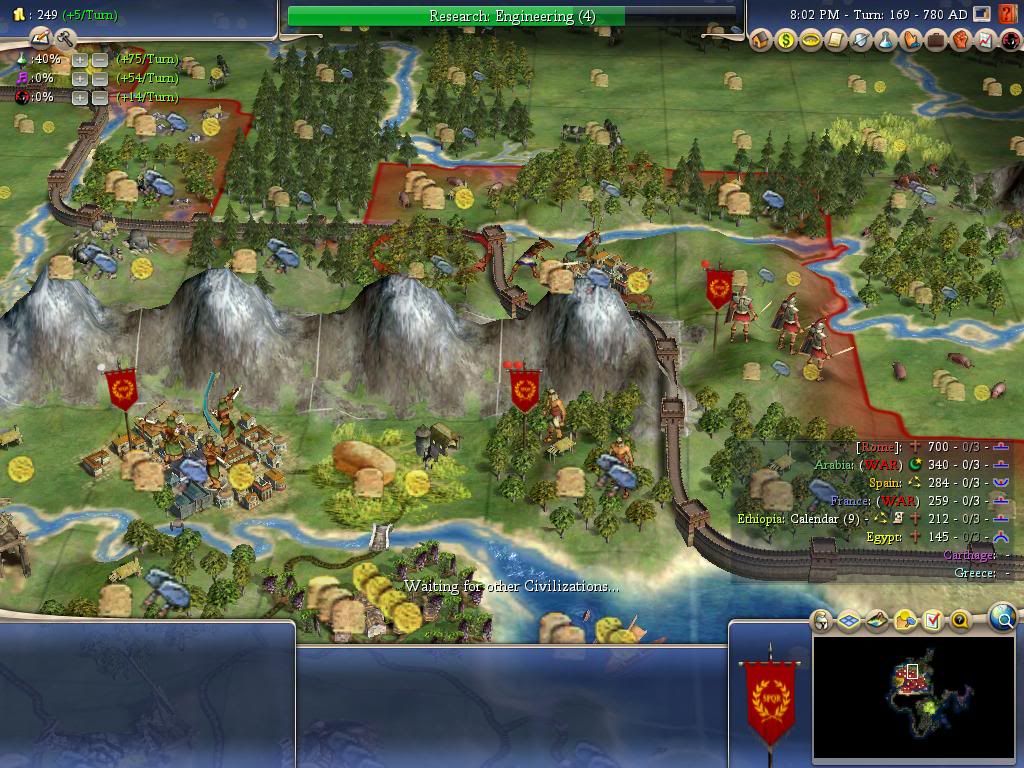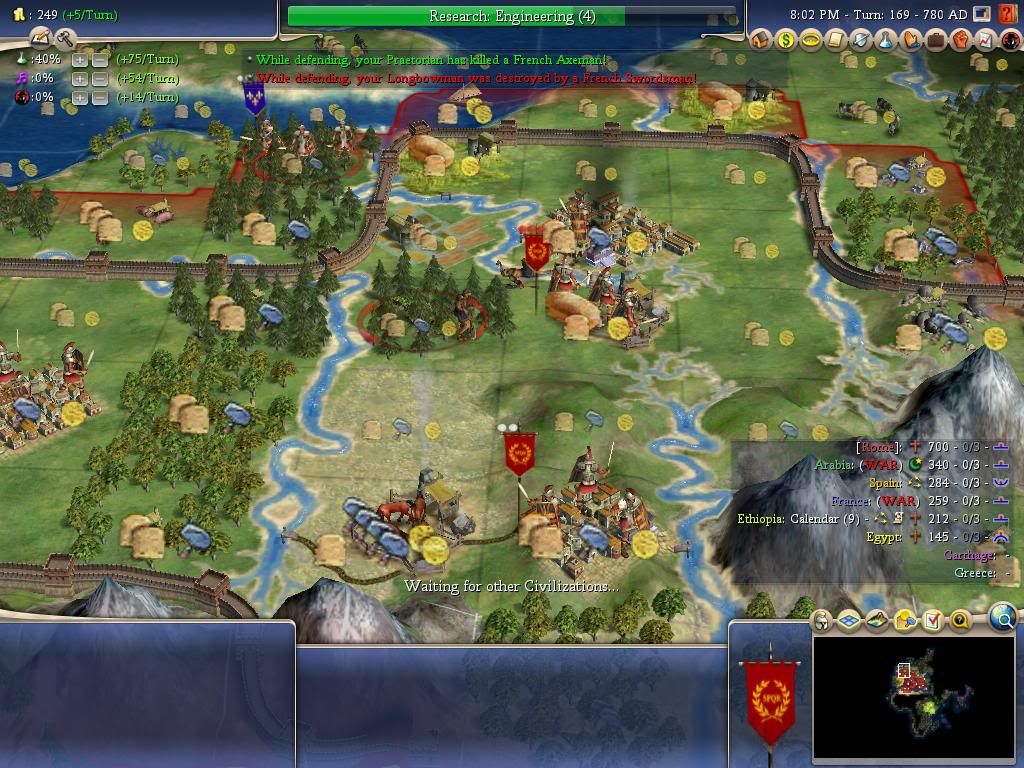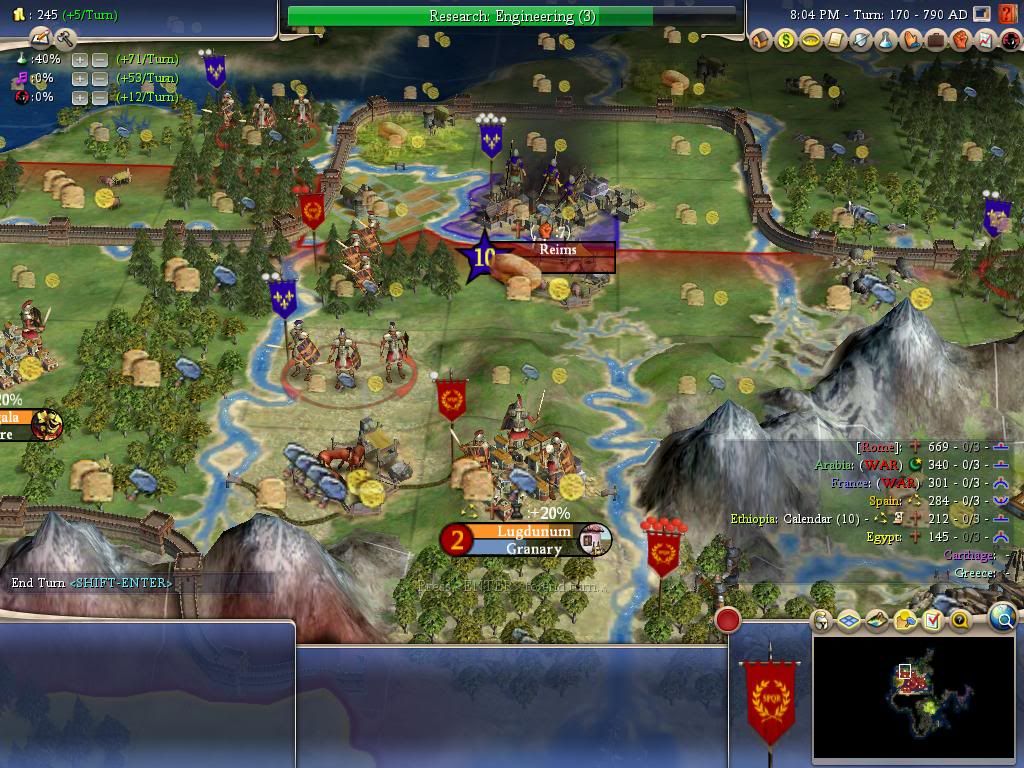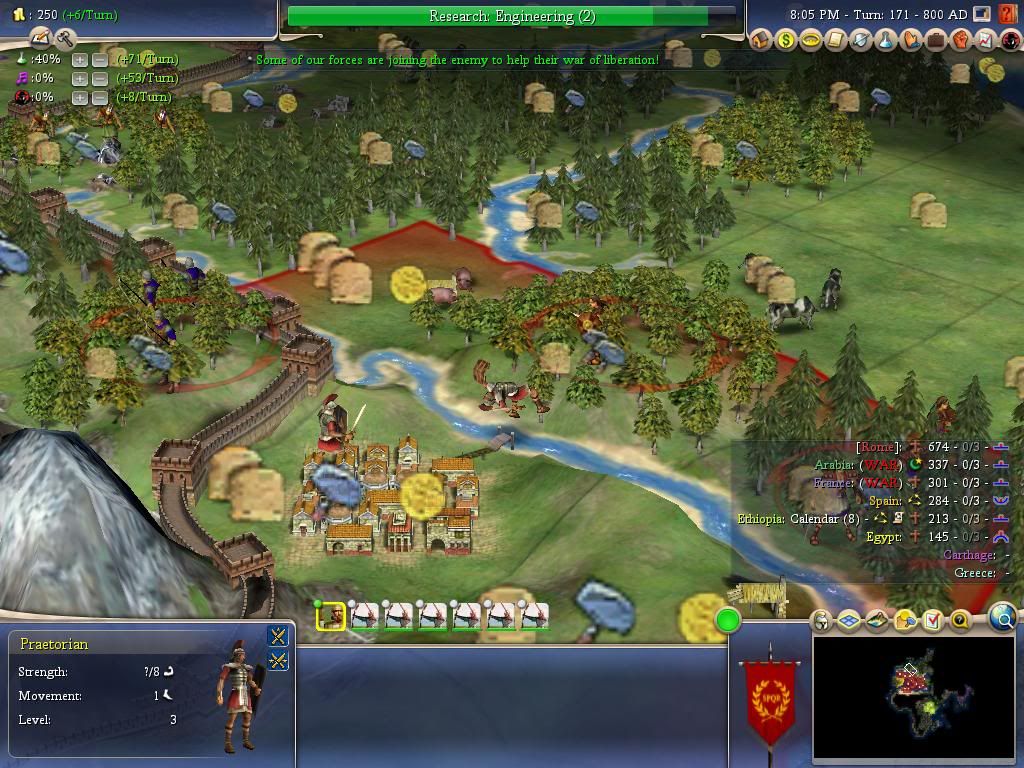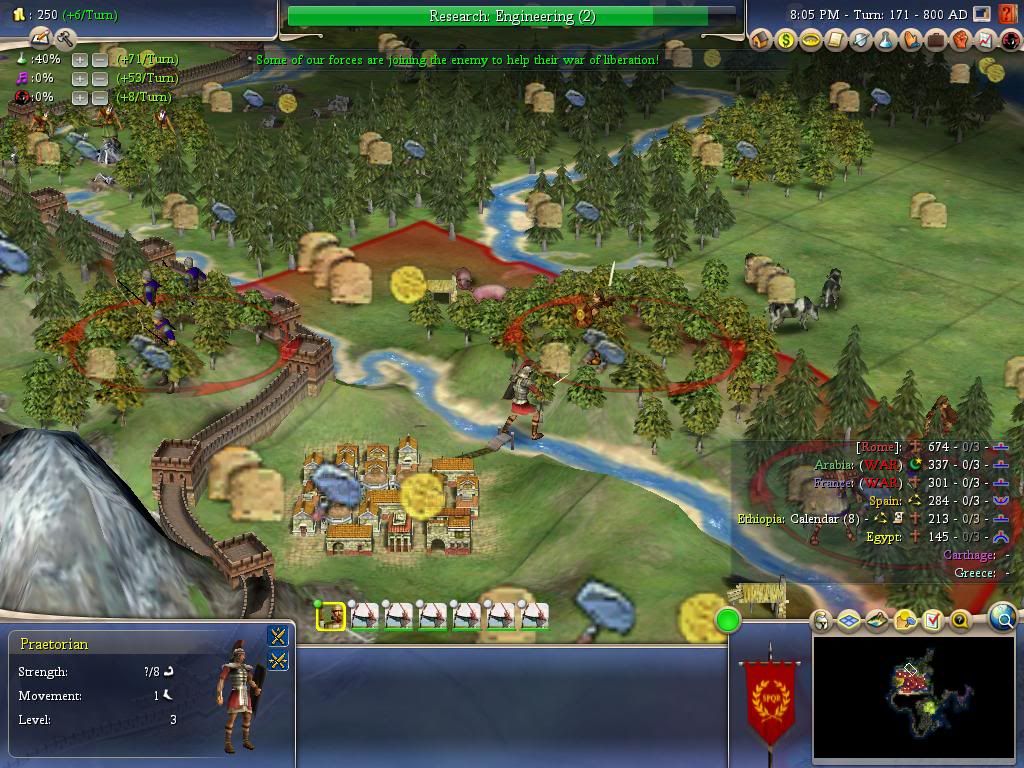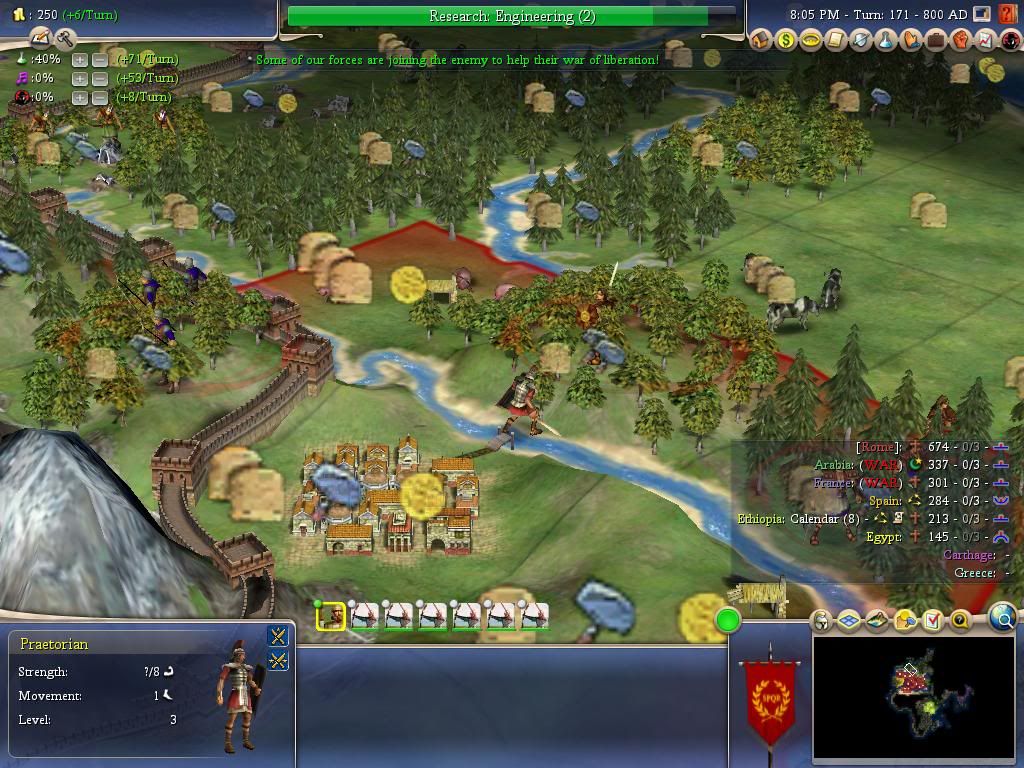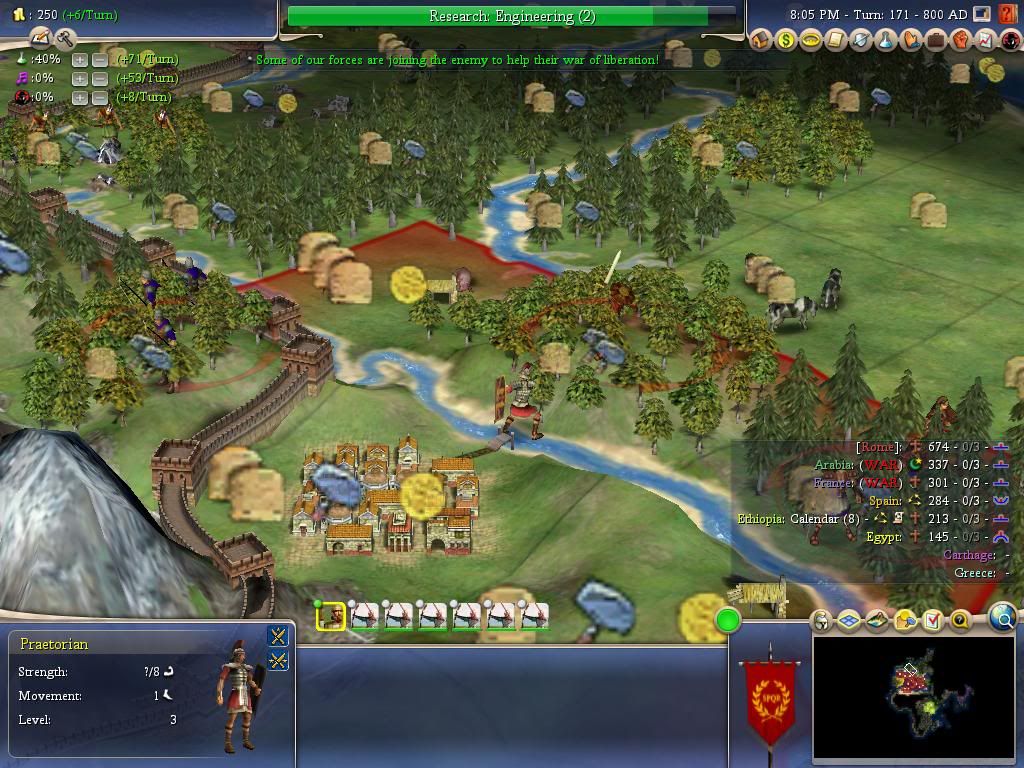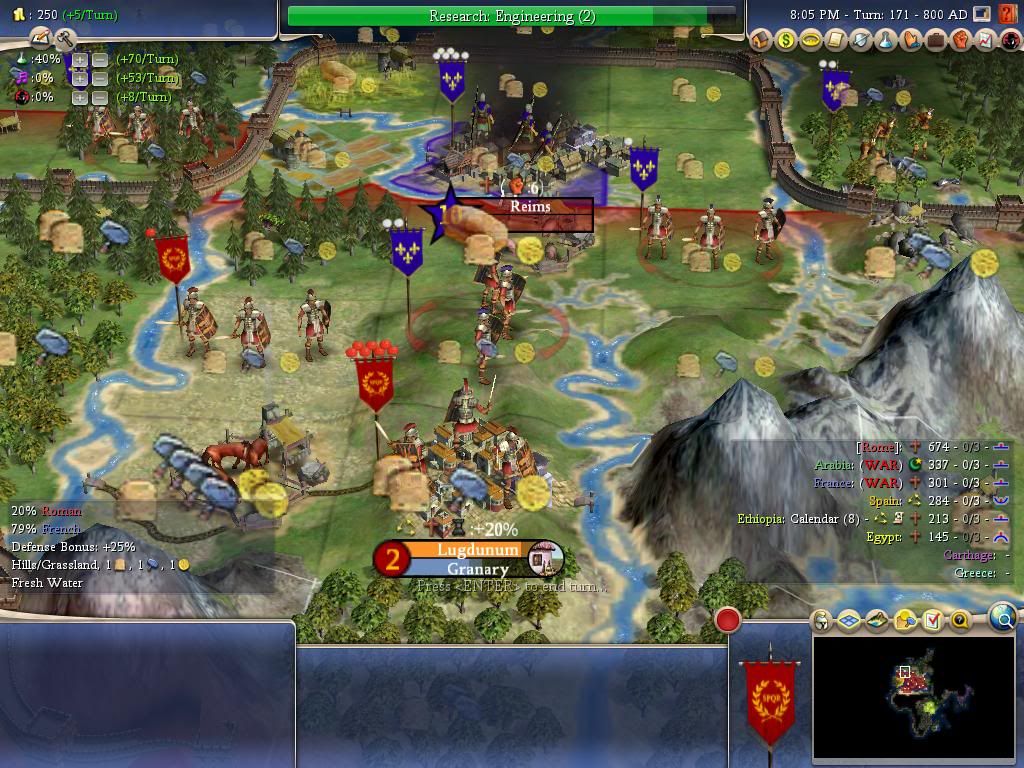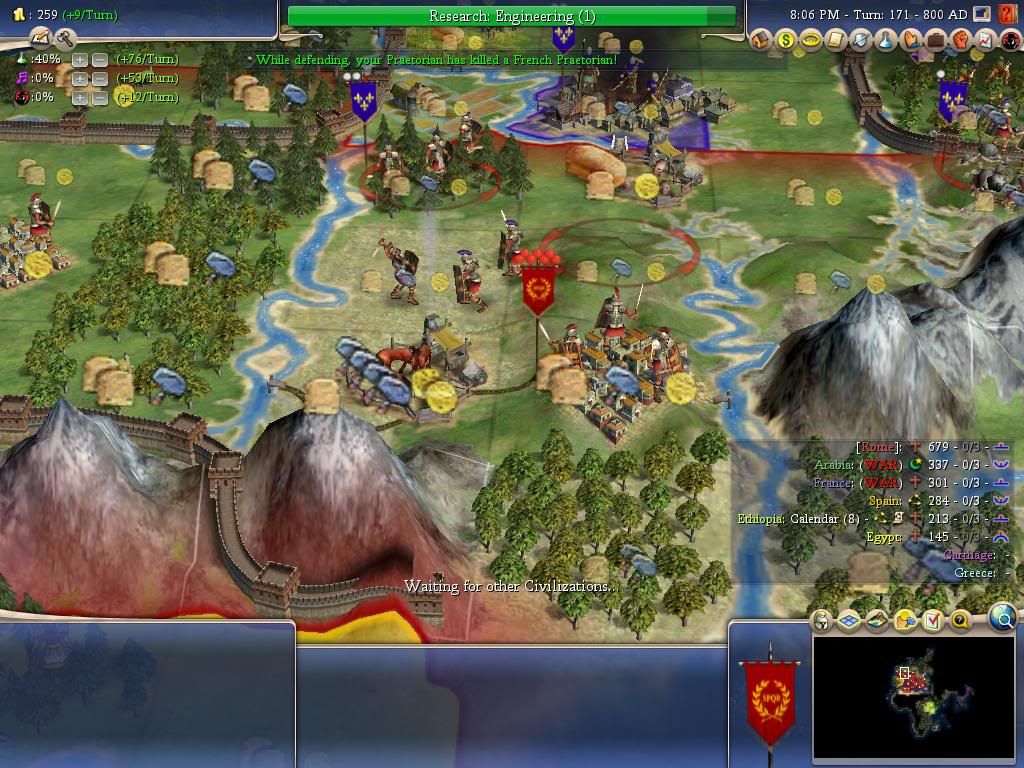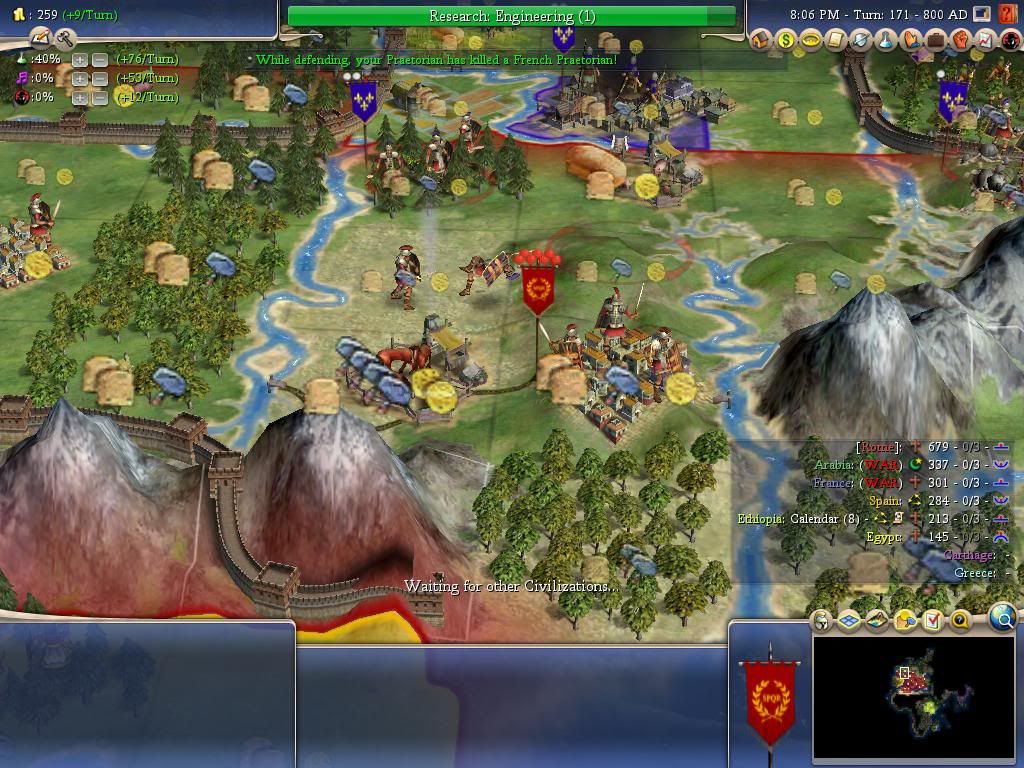Tycho
AFK Forum Warrior
- Joined
- Jul 31, 2011
- Messages
- 3,240
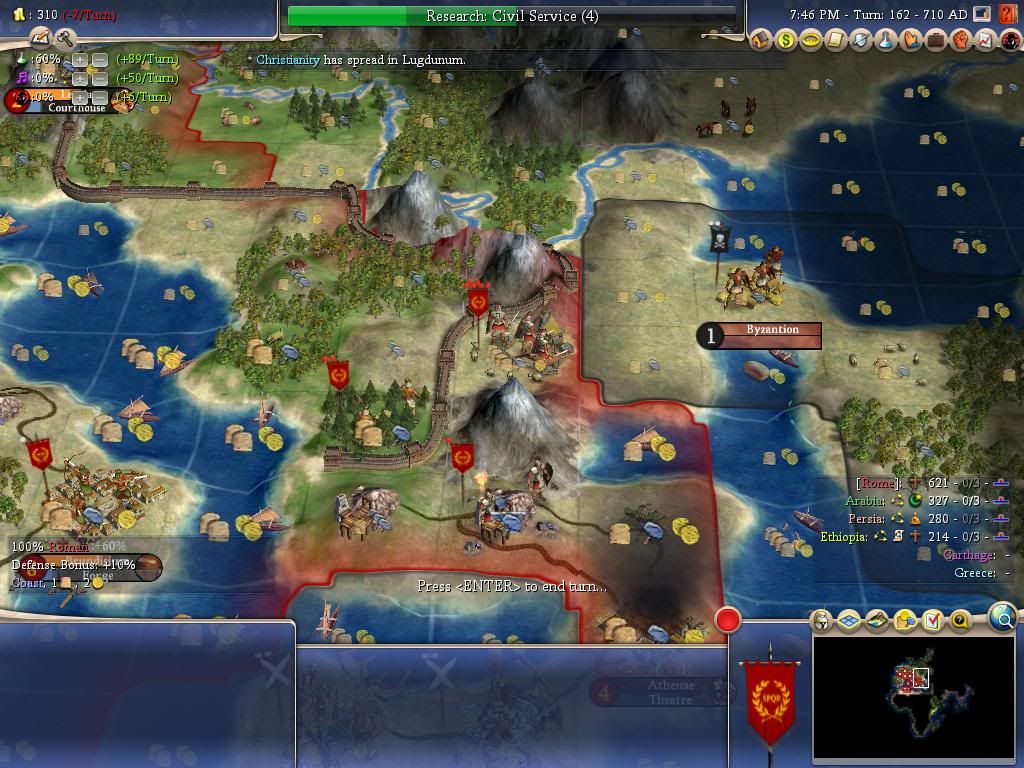
Gaius Racchus was a tough but able commander; he had led legions under orders from Emperors both new and old for thirty long years, and now his final orders were to conquer the former Grecian lands before he could retire back in Roma with his wife and children and assume a position in the Senate. Racchus was oft believed to be a sadistic man, but reports from that time period were the polar opposite; indeed Racchus was said to be kinder than most Roman legion commanders. The seven thousand crucified Greek children was revealed to be a kinder fate as a diary stored in a library in Roma reveals that a conversation between General Racchus and two generals shows that the generals Publius and Patriarchius advocated half of the city crucified and three quarters of the population flayed alive respectively.
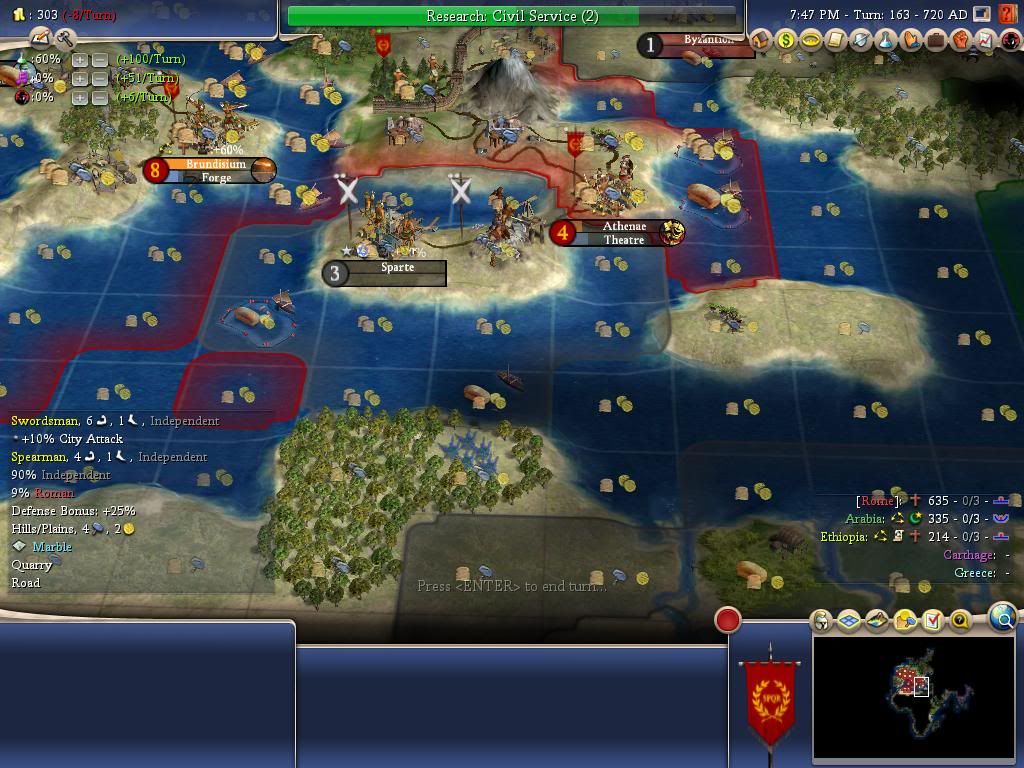
The Spartan Hegemony massed troops along the border of Rome and the newly arisen nation, but their attempts of attack on Athens would have been met with bloodshed of the highest order. It was later estimated by scholars that the death toll for the Spartans would have been around thirty thousand with less than five hundred Praetorian casualties. Luckily for the men and women of Sparte, they did attempt anything and draw Roma into a war.
For the moment.
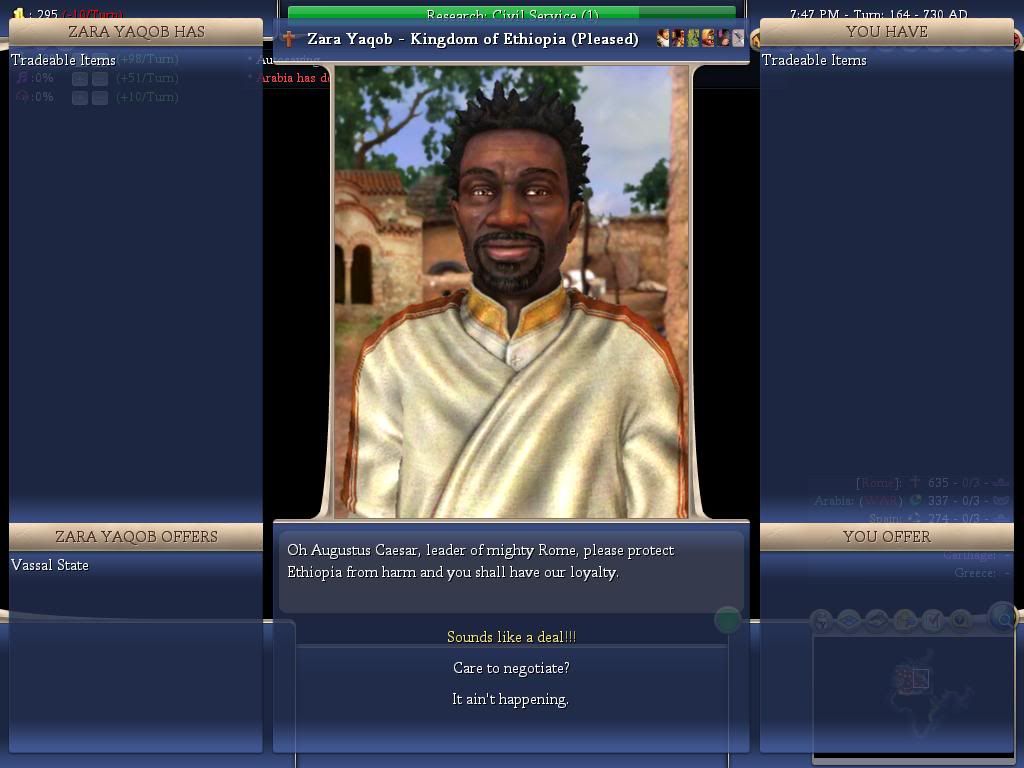
The cowardly Ethiopian nation offered to become a protectorate of the Roman Empire. The Emperor himself weighed the options, then decided to accept the Ethiopian proposal, with Ethiopia becoming the Province of Aethiopia. Trade on a massive scale opened up between the two nations with this binding of power.
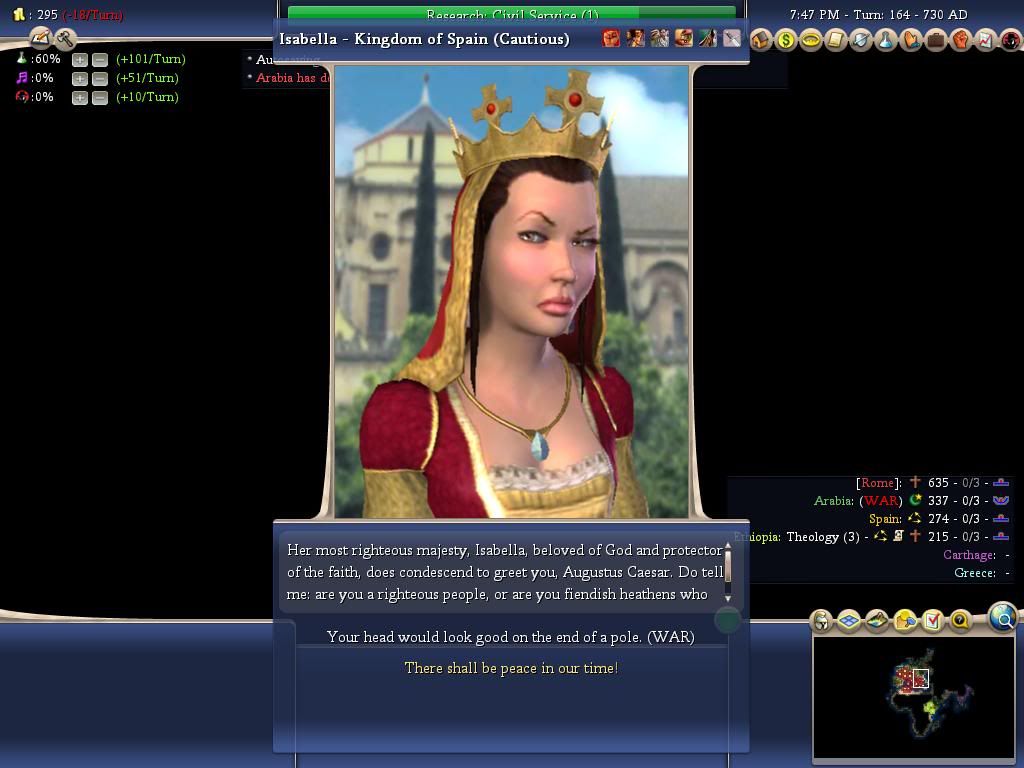
Word came from Iberia that the peoples who lived there, for a long time believed to be barbarians had formed a new nation. Their leader, Queen Isabel the First adopted Christianity as the state religion, and made contact with the Roman neighbors next door. Roma was cautious of this new people, they were not eager to open contact with a group of people who had long attacked and raided Roma's borders, but even so the Emperor opened contact.
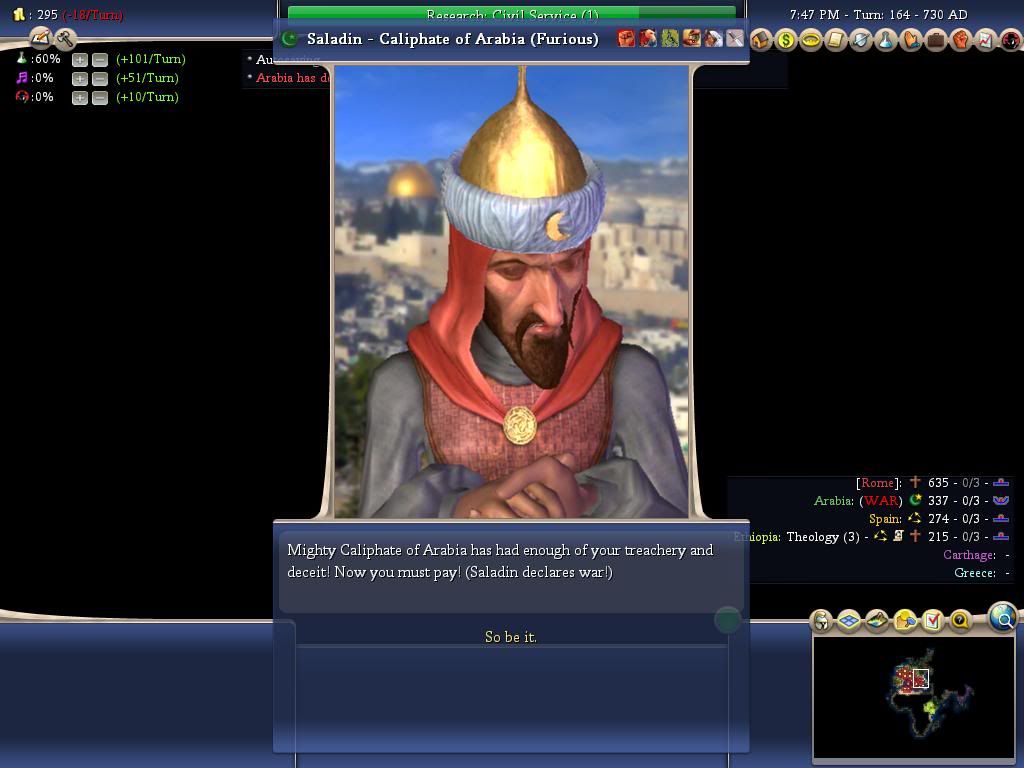
Arabia declared war on Roma, the treachorous dogs who had hounded Aethiopia for many decades. With the Arabian Caliphate and the Roman Empire now at war, people readied for the attacks that were no doubt soon to come.
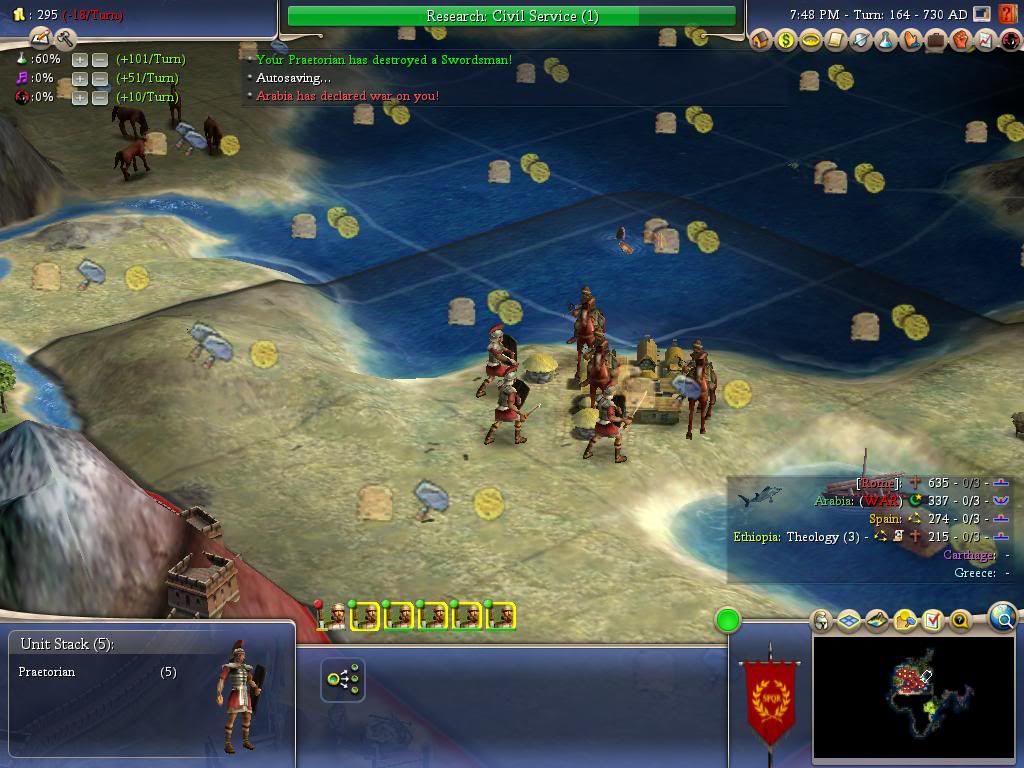
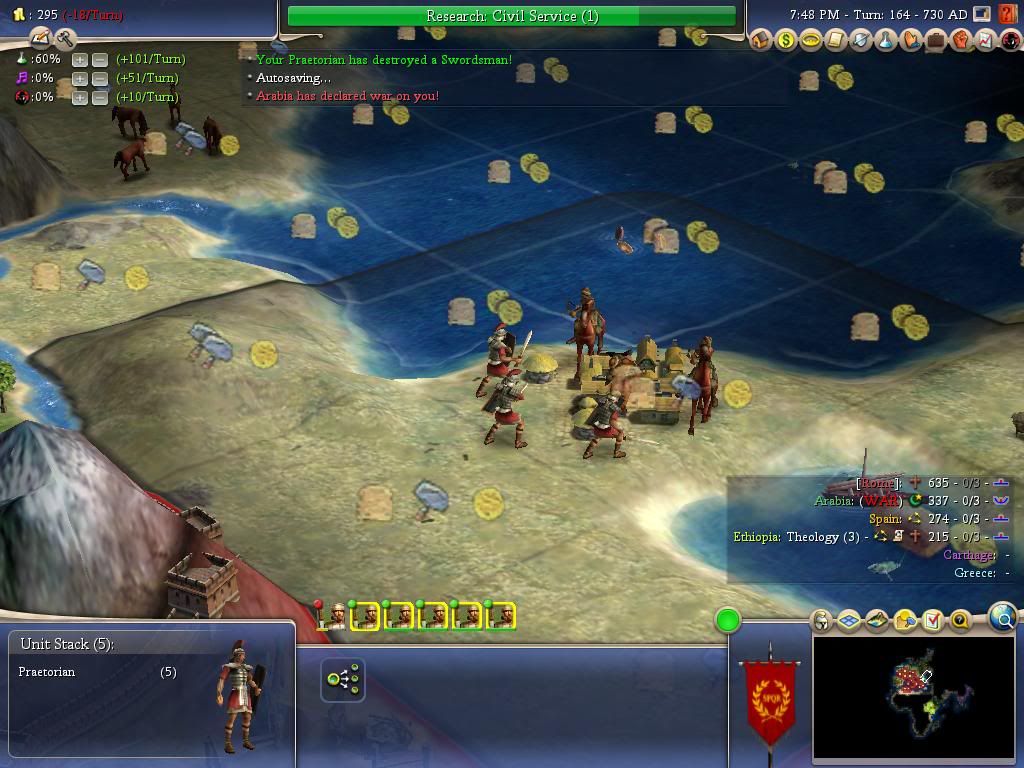
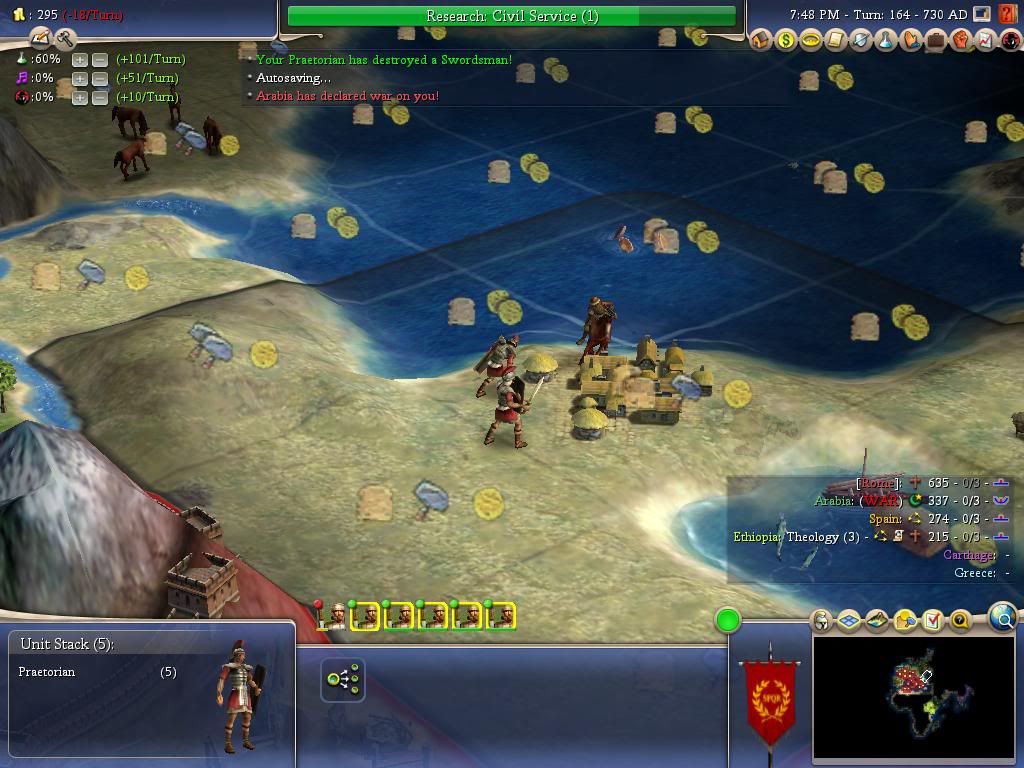
General Racchus led the assualt on Byzantion personally, leading his men through a breach in the wooden wall-palisade that the Greeks before the barbarians had constructed. The city fell without much resistence, the populace rising up to battle the barbarians and cast them out of the borders of the city.
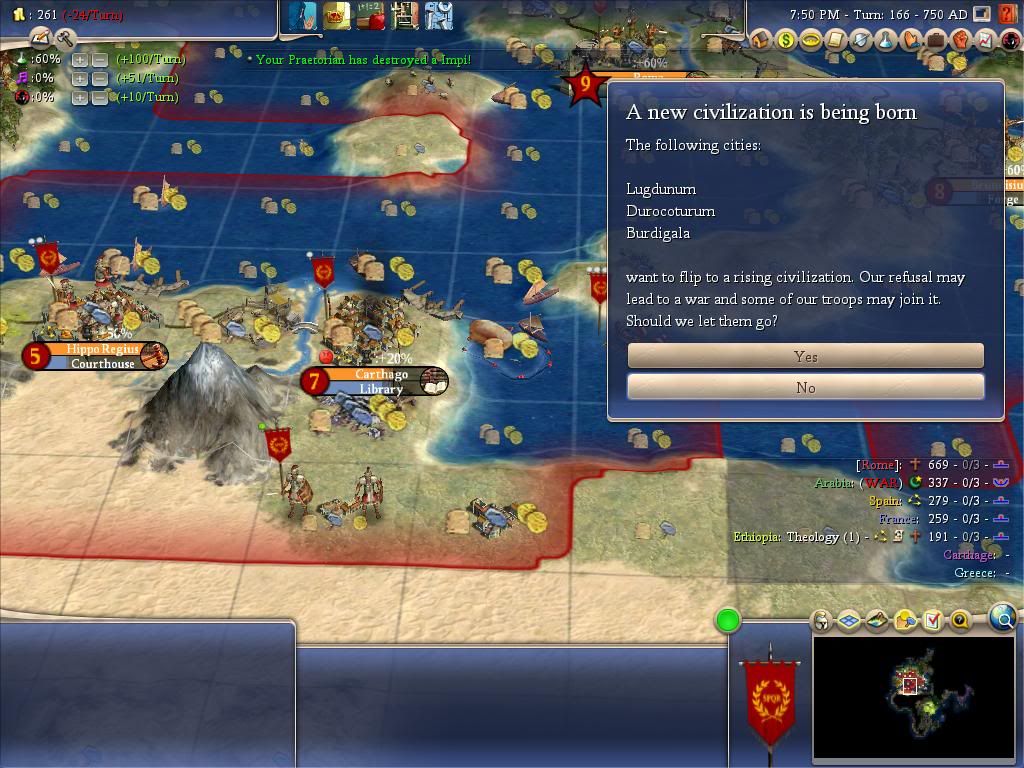
Cities on the northern border of the Roman Empire declared their independence from the Roman Empire, attempting to free themselves from the Empire. Emperor Claudius advocated harsh response to the declaration, calling up soldiers from the south and the east to deal with this attempted rebellion.
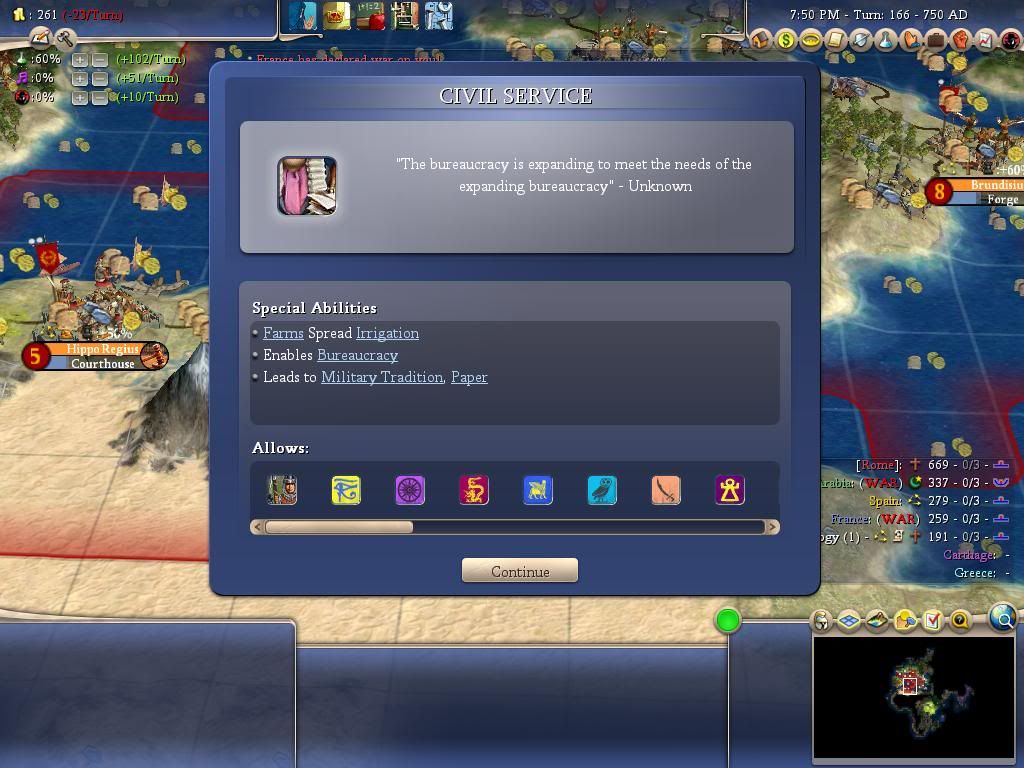
A mandate from the Emperor opened up plenty of governmental jobs for people to run the micromanagement portions of the Empires needed functions. This created a job boom with close to one million jobs being created for low level functioning.
Soon the North would be drenched in the blood of fellow Romans fighting each other over land in Gaul and Germania. The war would rip apart many a family and friendship and cause civil strife unseen before in the Empire.


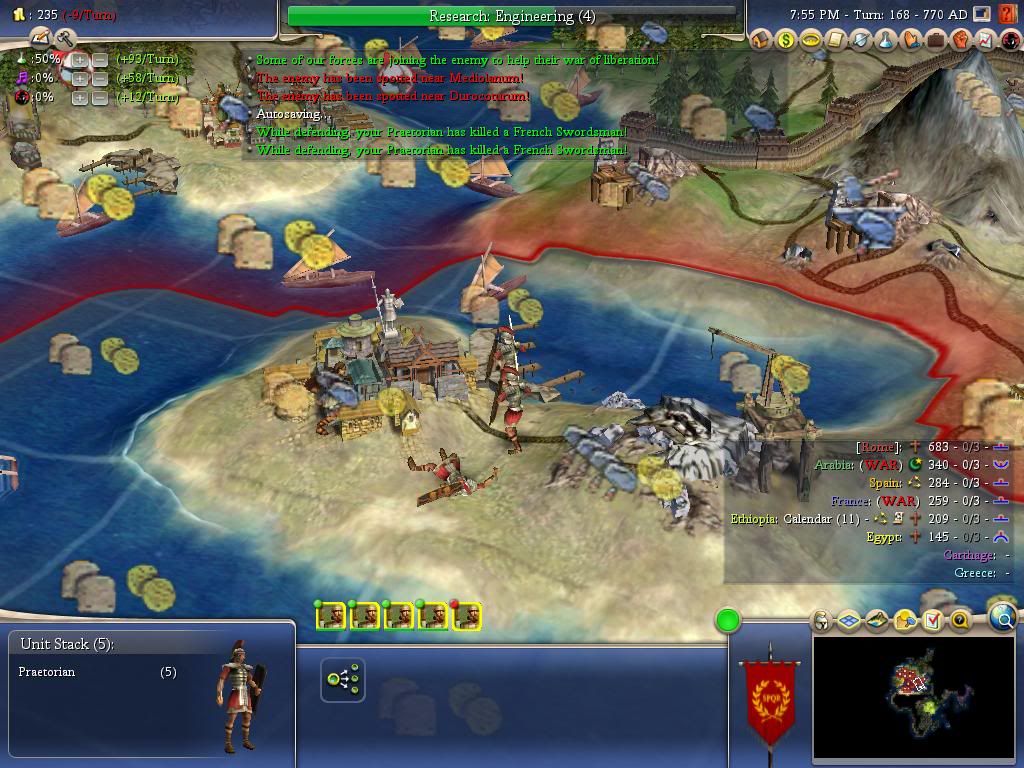
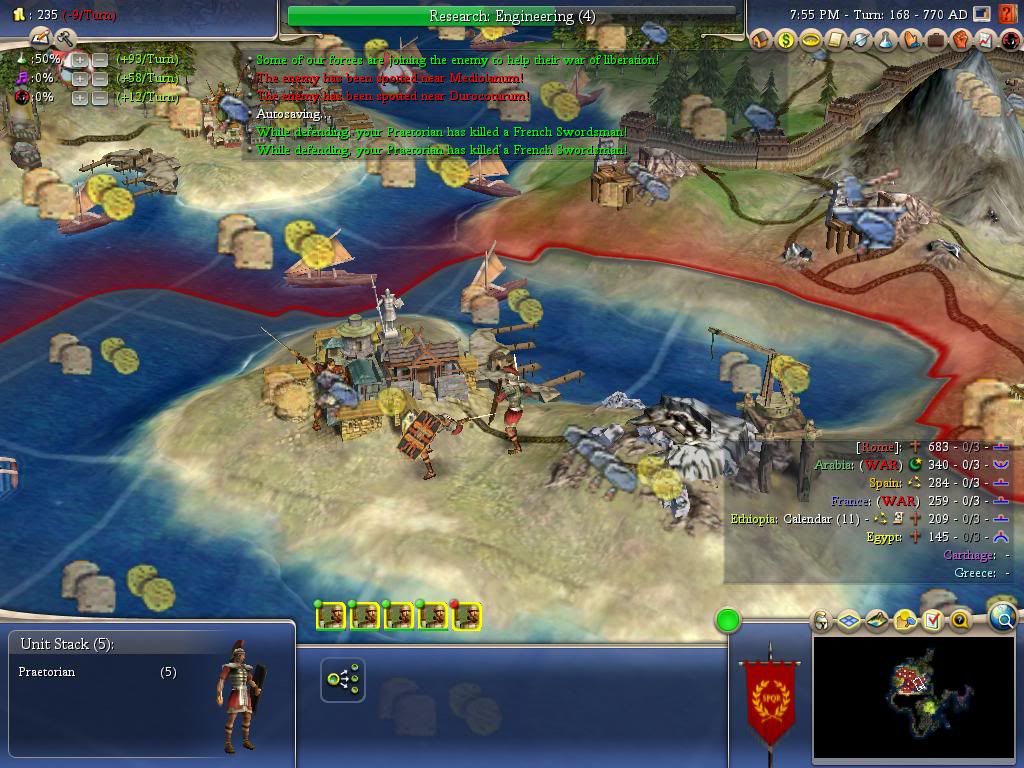
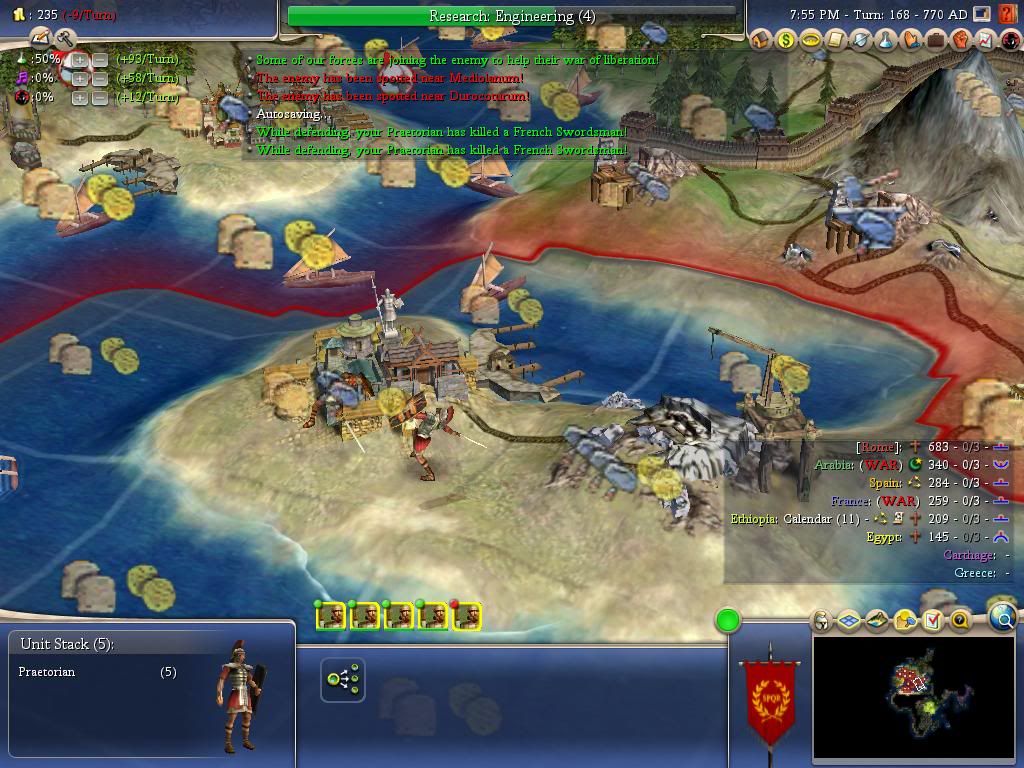
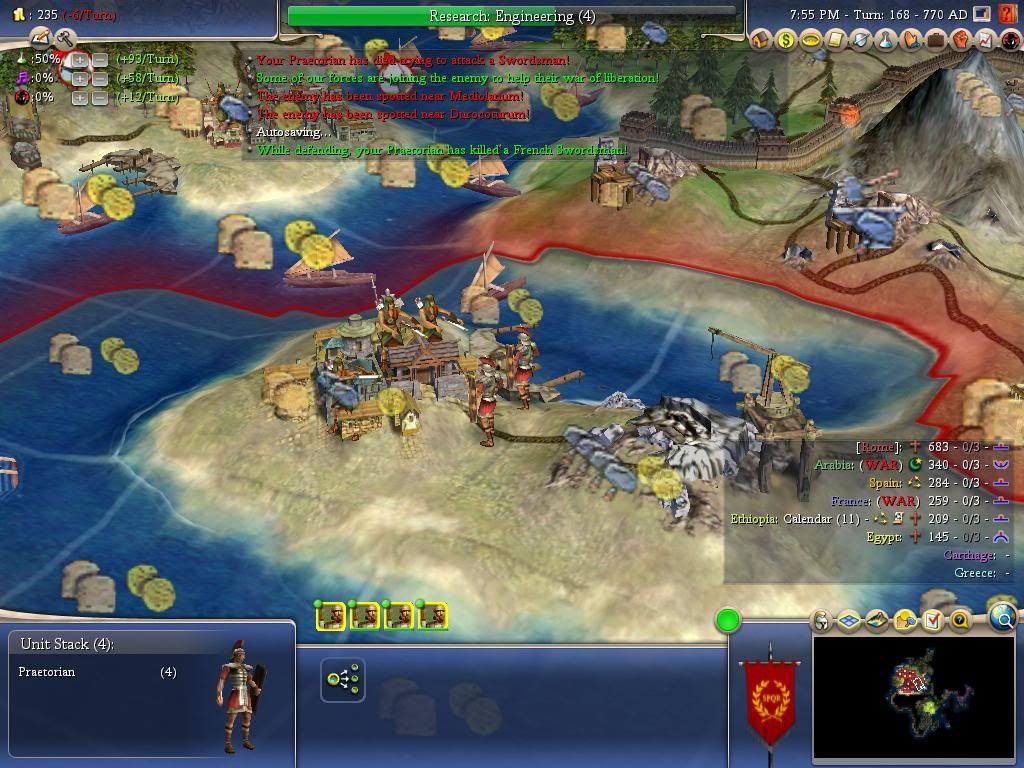
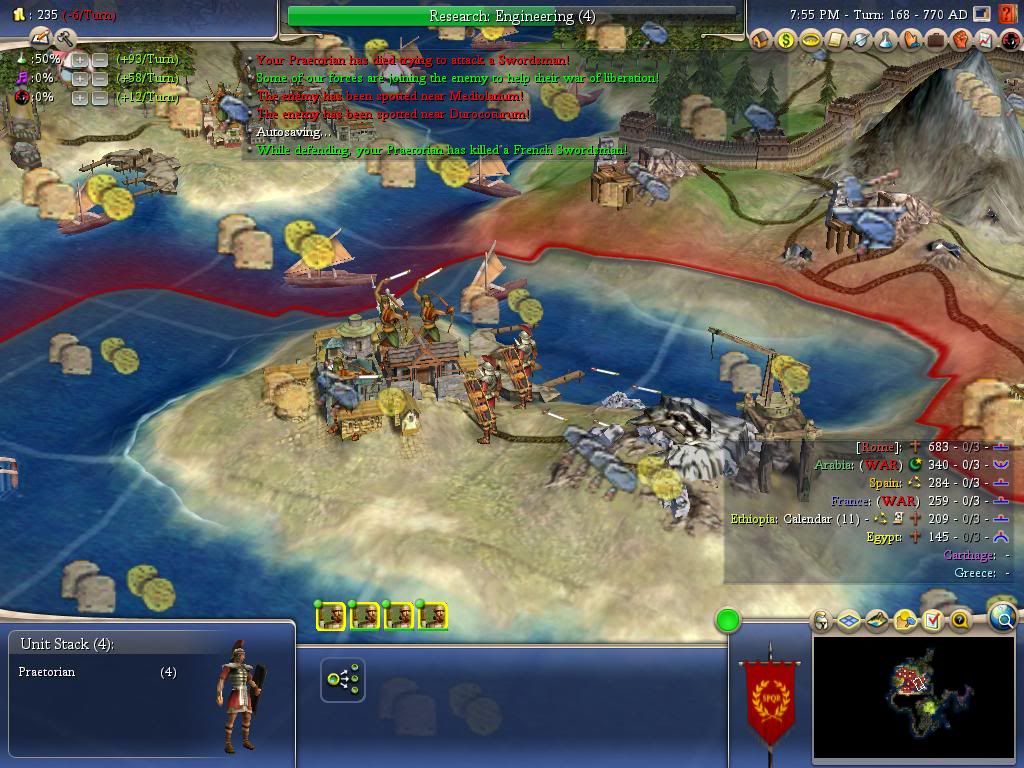
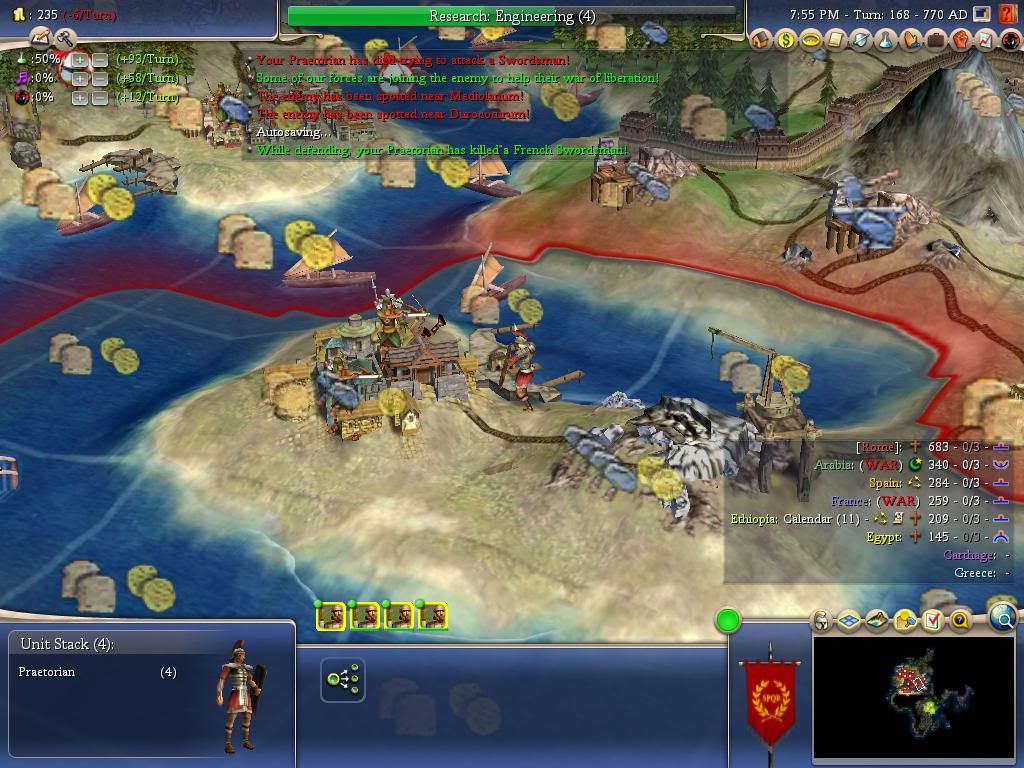
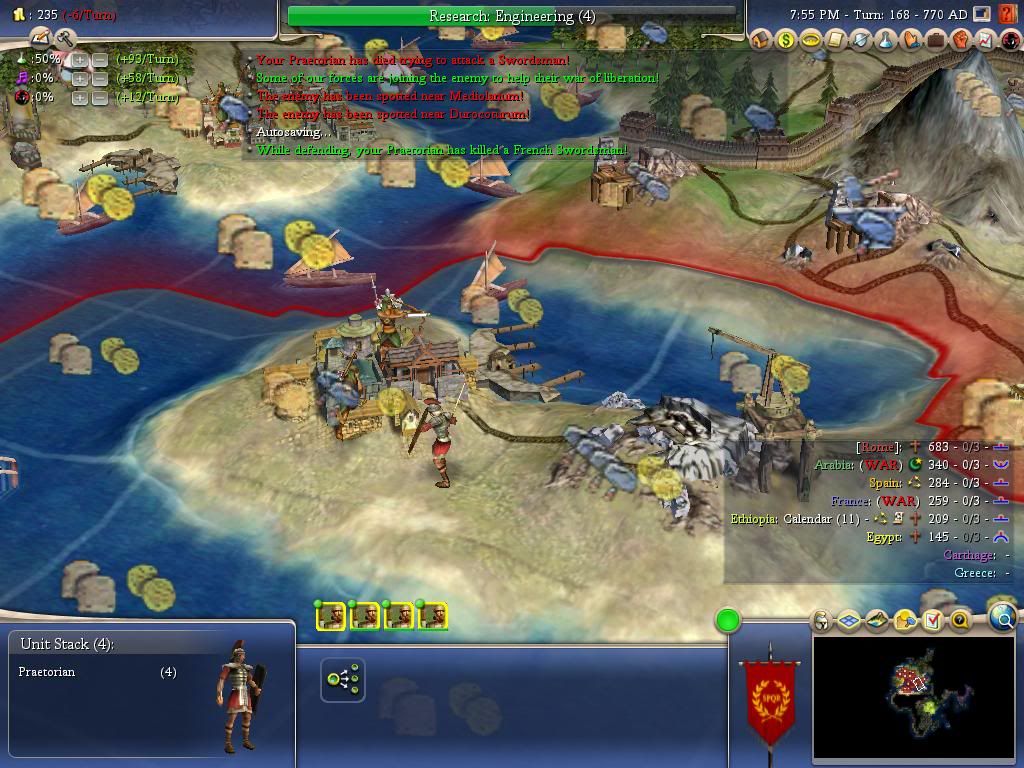
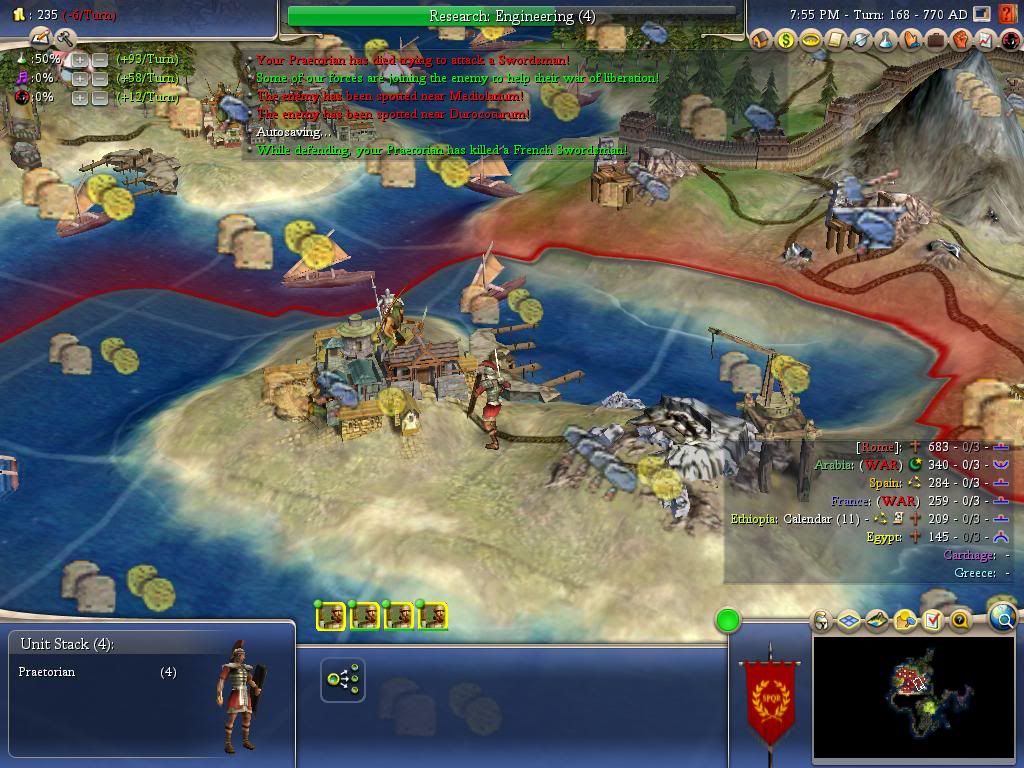
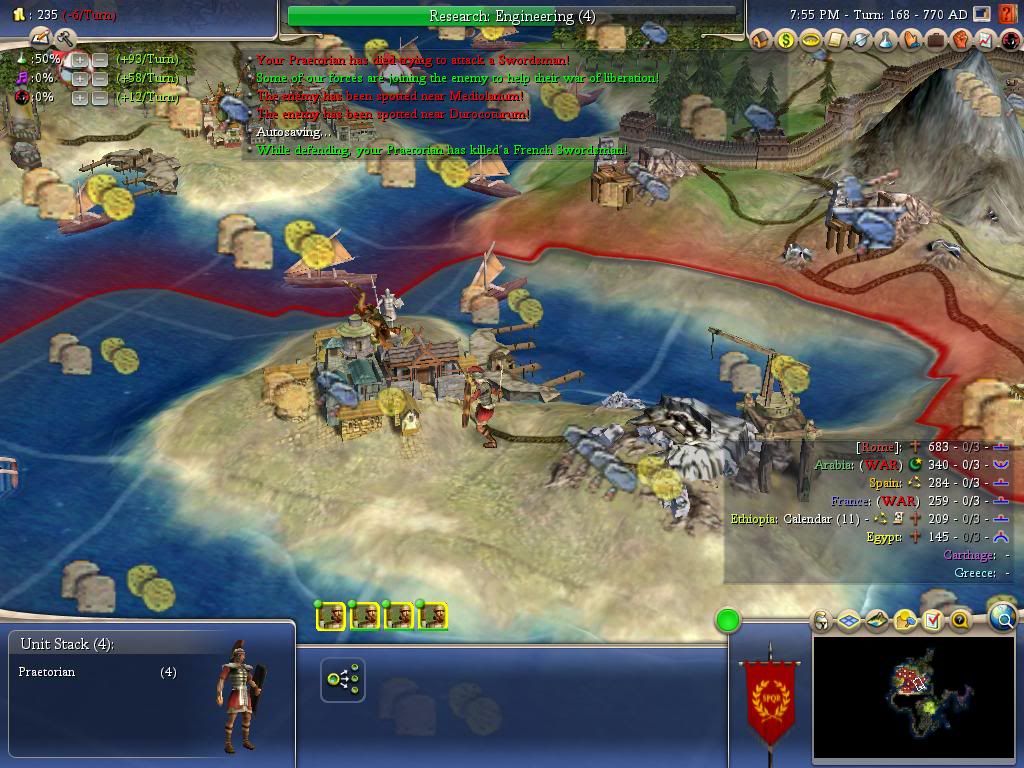
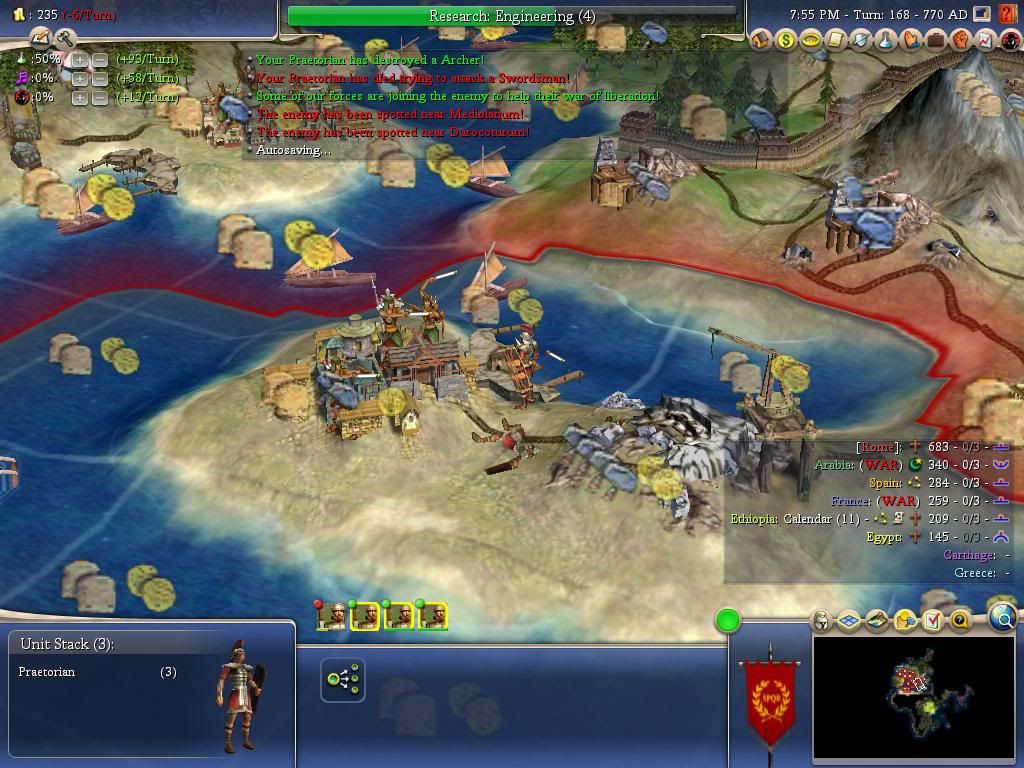
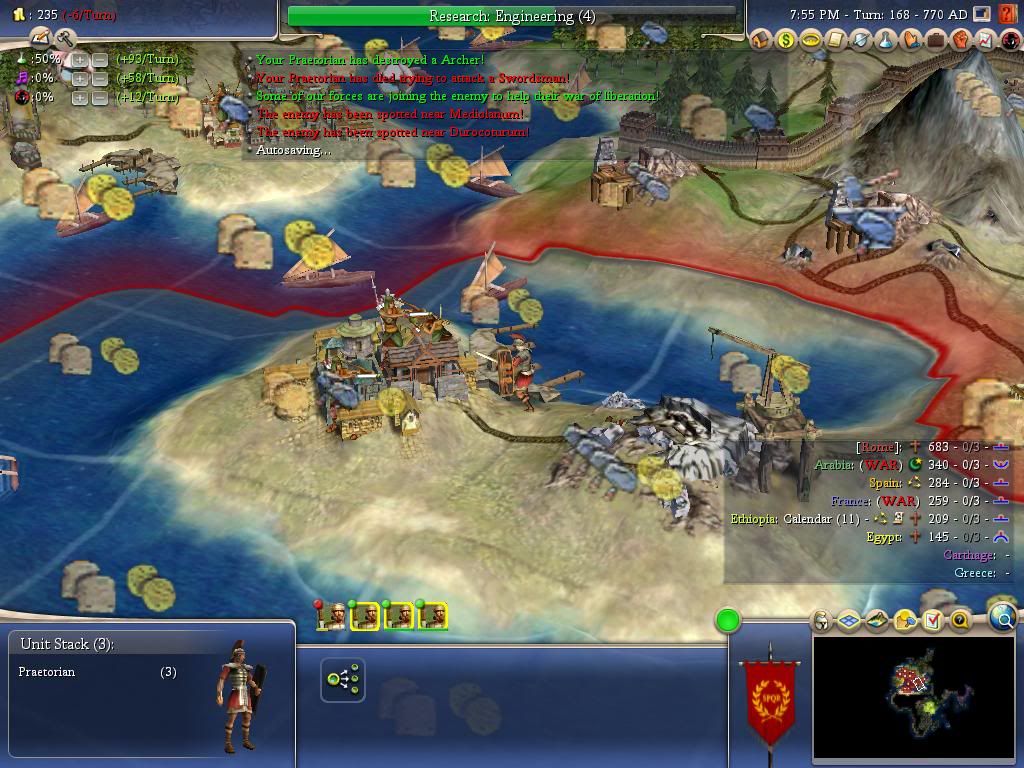
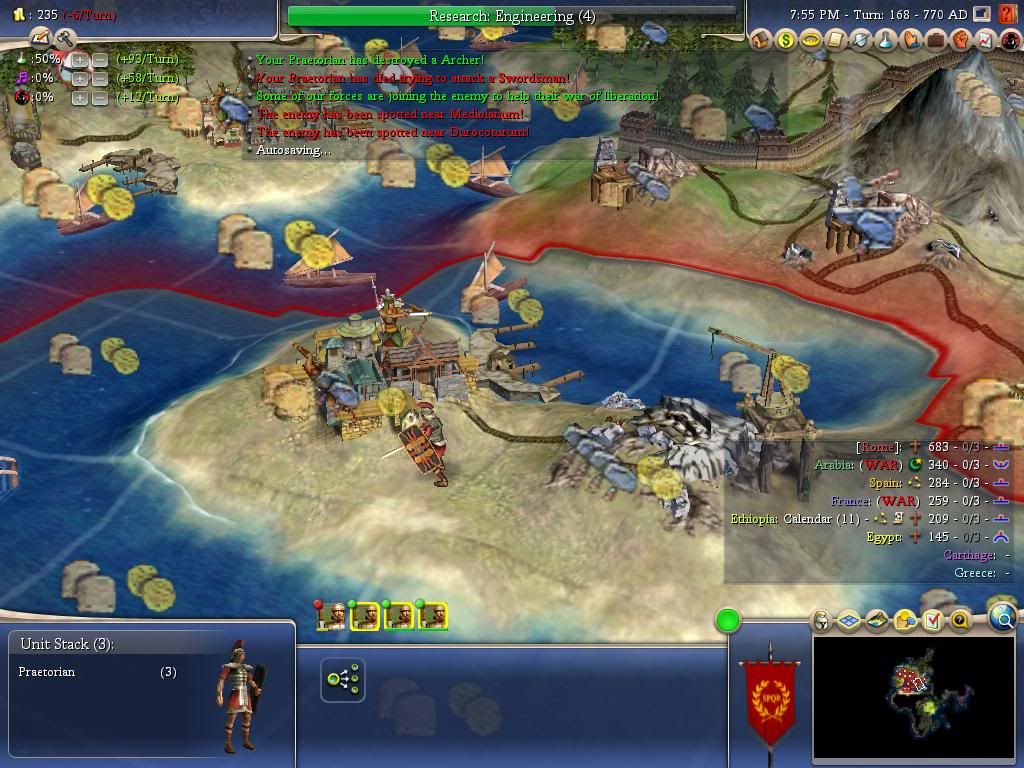
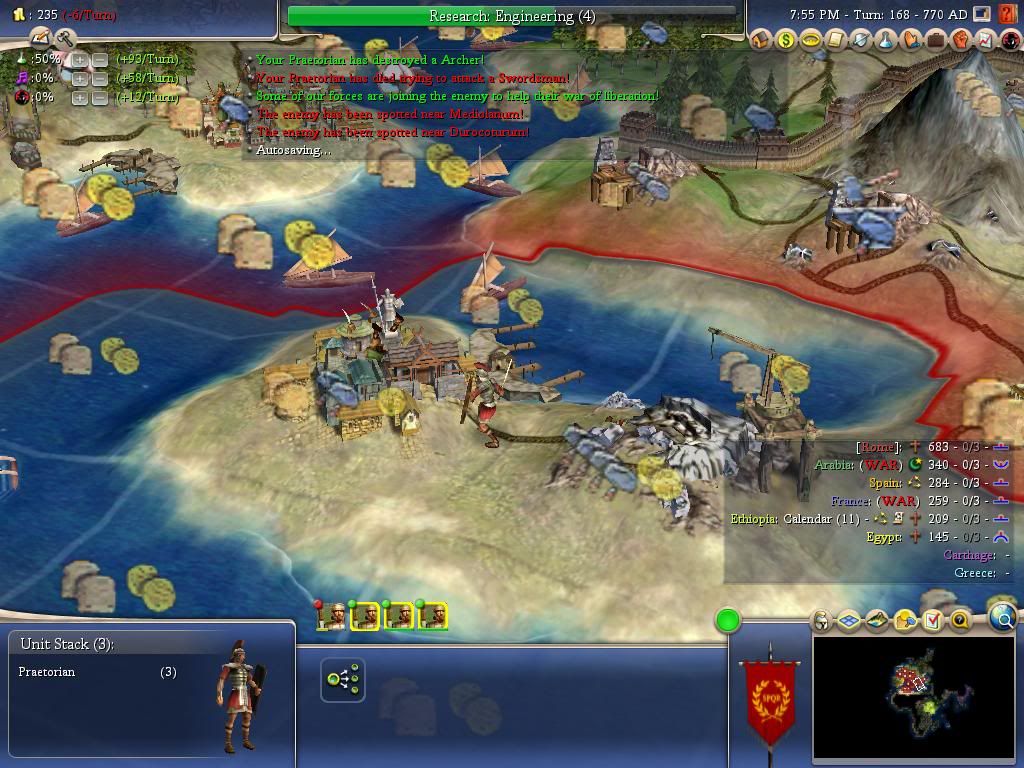
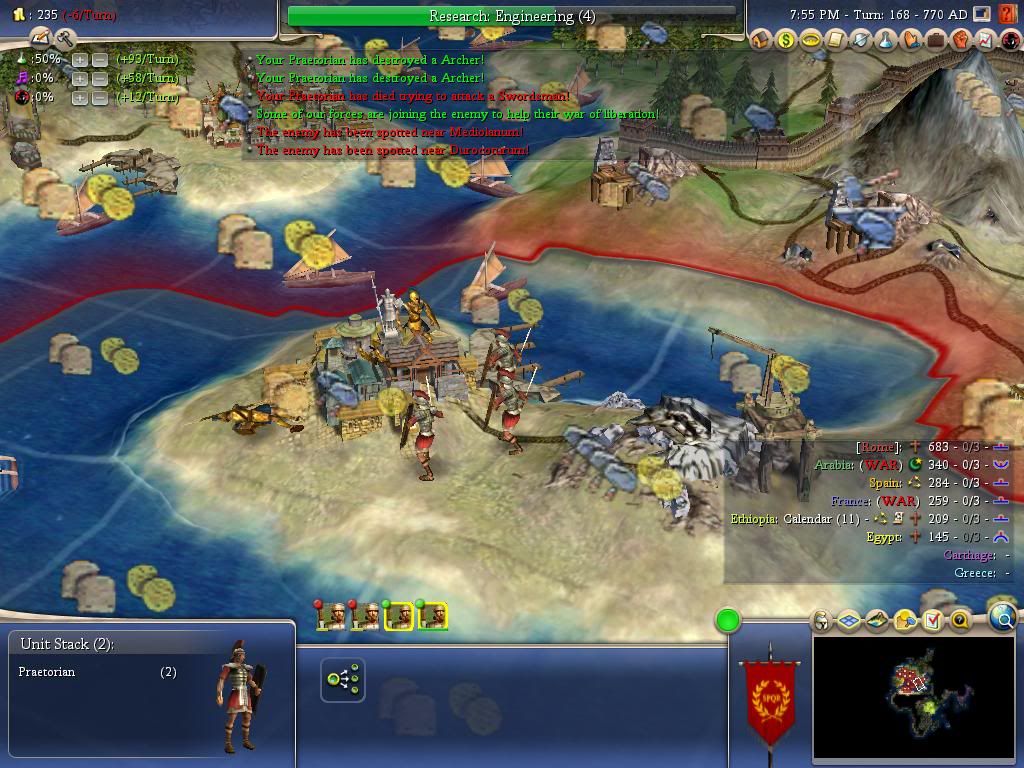
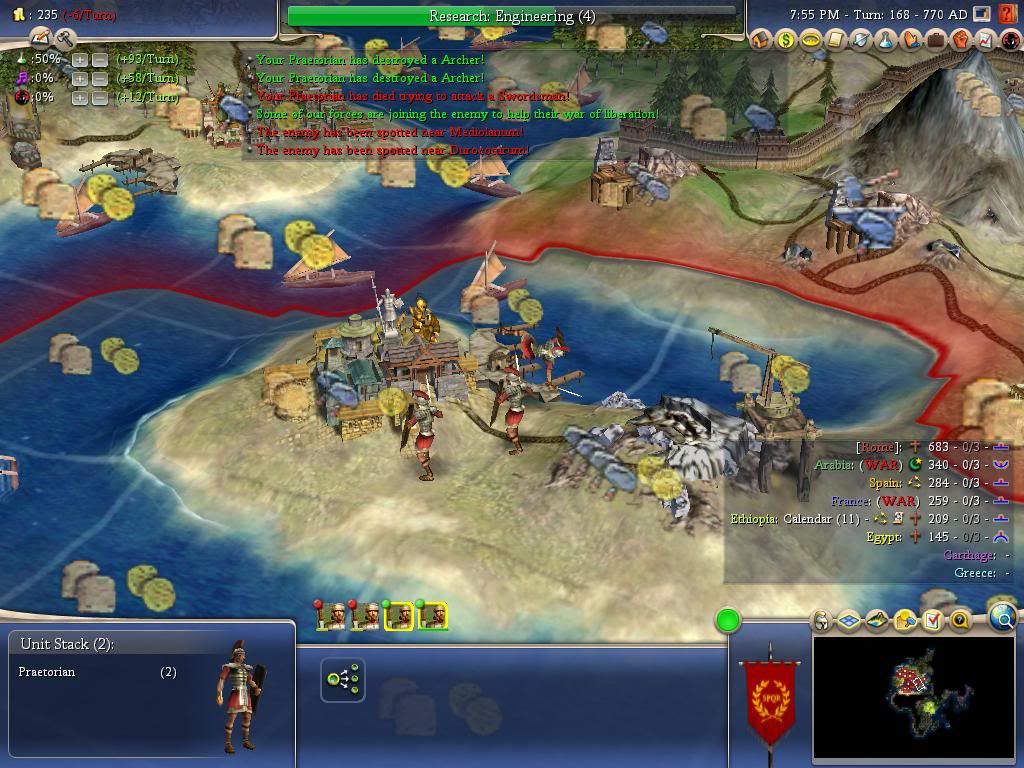
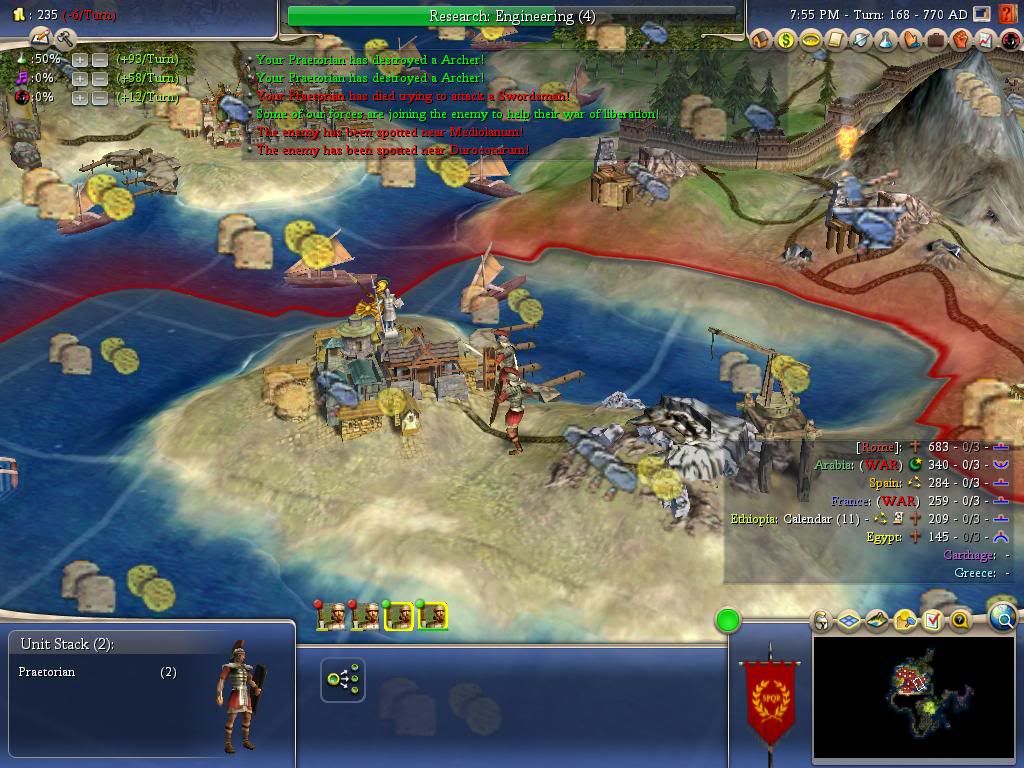
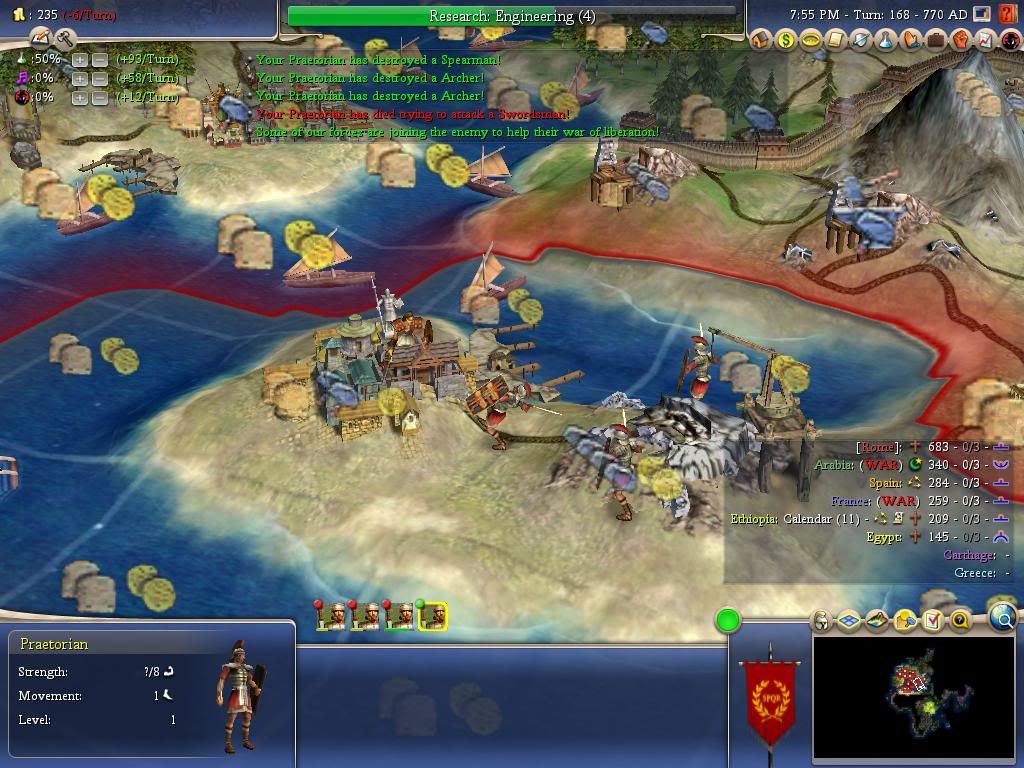
 gift them all of your cities instead and make peace.
gift them all of your cities instead and make peace.

